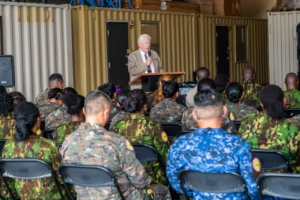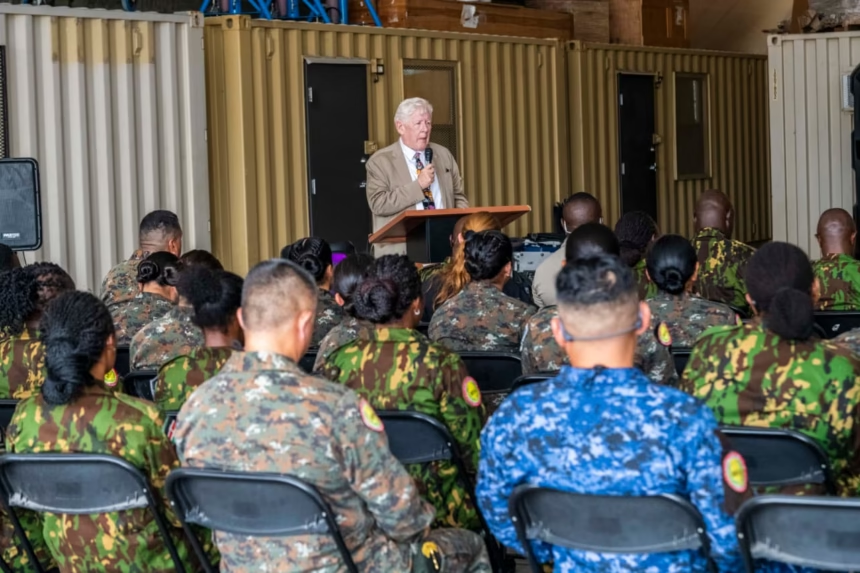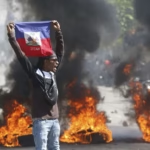The Gang Suppression Force (GSF) welcomed Canada’s Ambassador and Permanent Representative to the United Nations, Bob Rae, on Tuesday, October 21, 2025, at the LSA2 air base.
The visit is the highest UN diplomatic engagement since the Multinational Security Support Mission (MMAS) became the GSF on October 3.
Accompanied by Canada’s Ambassador to Haiti, André François Giroux, and senior officials, Mr. Rae praised the professionalism and dedication of GSF personnel. Colonel Eldon Morgan, the Force’s Deputy Commander, leads the team. The ambassador reaffirmed the United Nations and Canada’s commitment to support the GSF. He underscored the force’s crucial role in restoring security and stability as gang violence escalates.
Canada will provide an additional $60 million and launch a regional maritime security initiative. This aims to bolster efforts against transnational organized crime in Haiti and the Caribbean. “Time is of the essence to ensure a smooth and effective transition,” Mr. Rae said. He emphasized international cooperation and the need to deploy more personnel by April 2026.
The visit also highlighted the role of women within the GSF. Ambassador Rae met with police officers and service members to mark the 25th anniversary of UN Security Council Resolution 1325, which advances the Women, Peace, and Security agenda. Chief Inspector Veronica Wanjiru of Kenya spoke on behalf of the GSF’s 47 women personnel, emphasizing their essential contributions to field operations.
Officials report that the GSF is already operational. It will have up to 5,500 uniformed members and 50 civilian staff. This will enable broader coverage across Haiti. Missions include neutralizing armed groups, arresting suspected gang members, protecting strategic sites like ports and hospitals, and securing transit routes for humanitarian aid.
The deployment will have strong international backing. The United States recently supplied 20 armored personnel carriers. Five are already assigned to the Artibonite region. These assets support joint operations with Haitian police and armed forces, including efforts to secure the Albert Schweitzer Hospital in Deschapelles.
Persistent violence continues, with targeted gang attacks in Port-au-Prince, Kenscoff, and Artibonite. Despite this, the GSF remains committed to protecting communities and supporting stability. The United Nations Support Office in Haiti (UNSOH), expected by April, will provide logistical, medical, and operational support to help the GSF.
Bob Rae’s visit highlights that international assistance is crucial, but Haiti’s path to lasting stability depends on coordinated action and strong commitment from national authorities. Reinforcing the National Police, Armed Forces, and security institutions is essential for restoring peace and public confidence.
The challenges facing Haiti are complex. The past has shown that international forces alone do not secure lasting stability. The effectiveness of the GSF now depends on strong national measures and true cooperation with Haitian security institutions—without this, even major international support cannot restore enduring peace.







